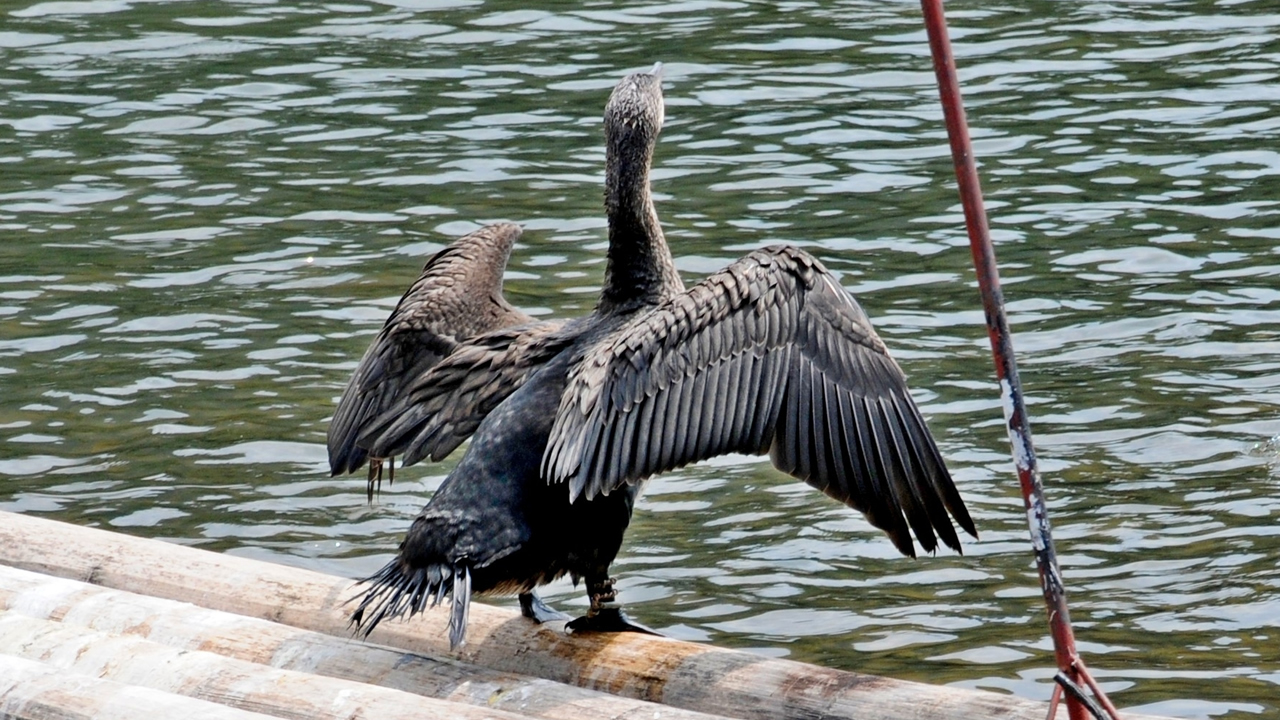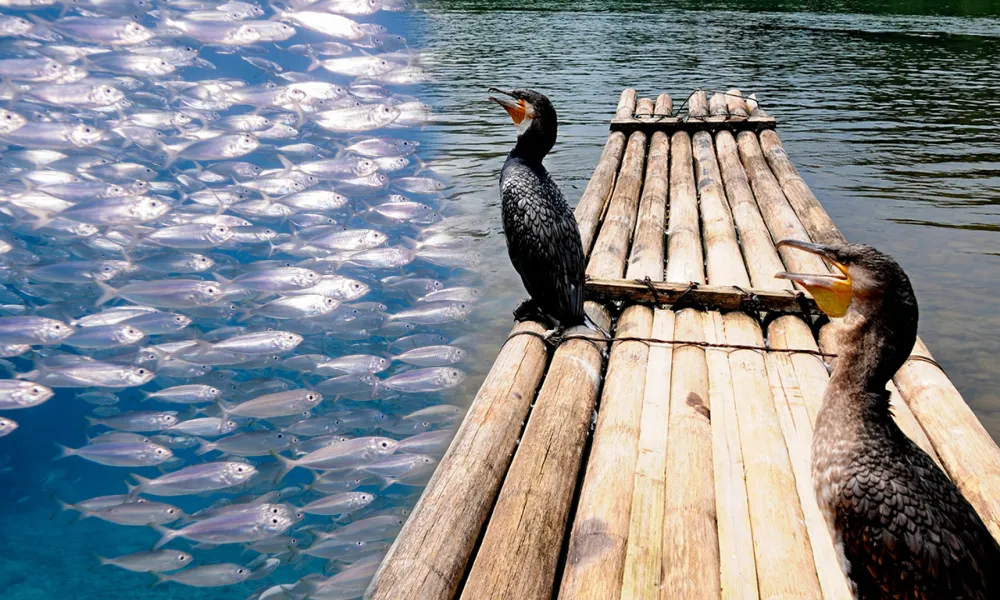Redux
Stories that circle and return
At the summer coastal house, time slows. The sea speaks in whispers, and I listen. Each morning, the cormorants arrive, dark silhouettes against the shimmer of dawn. They do not rush. They wait. Still as statues, eyes locked on the water, they study. Then, with a sudden grace, they dive, silent, sharp, certain. Their focus is not a luxury. It is survival.
And I wonder: why can’t our politicians be more like cormorants? To spread their wings after action, not before.
Let them perch on the edge of history with patience. Let them dive into the depths of the Cyprus problem not for applause, but for resolution. Let them learn that clarity is born from silence, and that action must follow understanding. The cormorant does not waste movement. Nor should they.
Beneath the surface, silversides shimmer, silver threads in a living tapestry. Small, fragile, alone they would not make it, they would scatter. But together, they are strong. They move as one, a flickering unity that defies the tide. I watch them and see us, Greek Cypriots, Turkish Cypriots, islanders bound by sun and salt and longing. We are small, yes. But we are many. And if we swim together, we survive.
Why can’t our leaders see that nature itself offers a strategy? Why can’t they understand that unity is not a slogan but a lifeline, that peace is not a distant star or a rare full moon, but a choice made daily in quiet rooms and brave hearts?

Nature does not lie. It does not posture. It simply endures. The cormorant teaches us to wait. The silverside teaches us to unite.
So this summer, as I watch the cormorants dive and the silversides shimmer, I hold onto a quiet hope: that our leaders might look to nature for guidance. That they might learn to wait, to listen, to act with intention. That they might understand that survival and progress require both patience and solidarity.
Because if birds and fish can teach us how to live, surely we can learn how to coexist.
